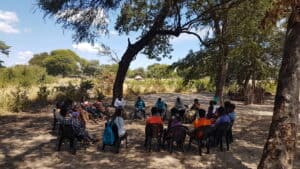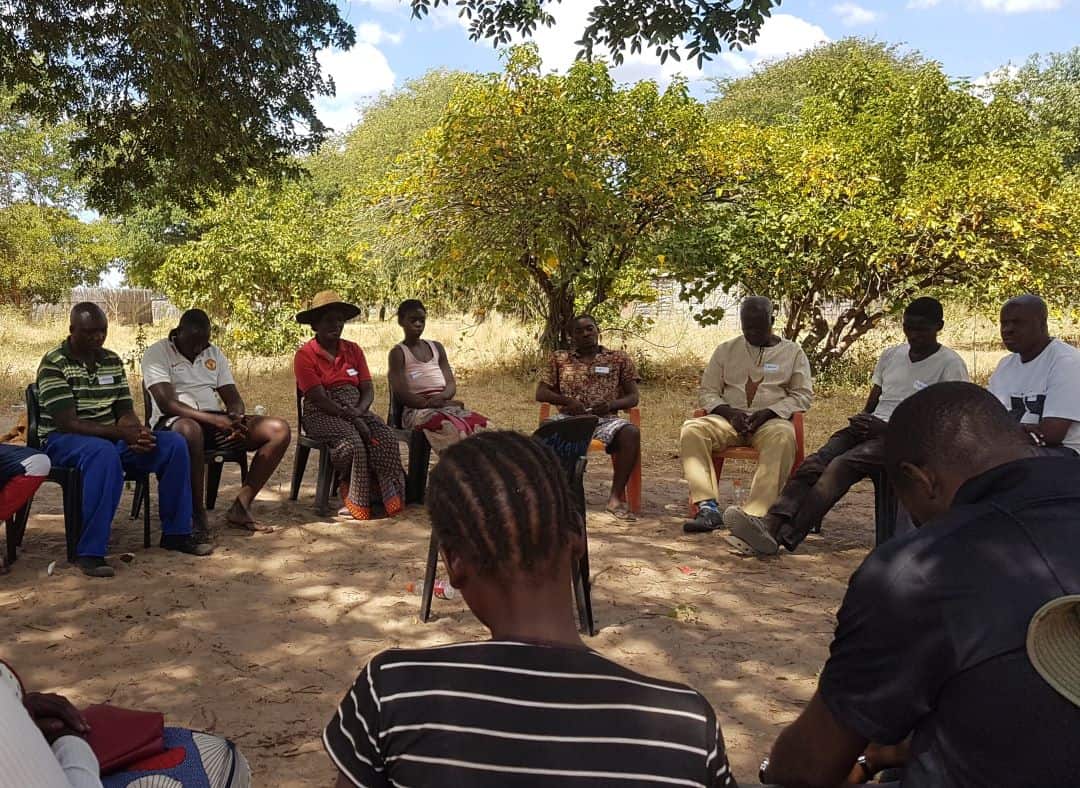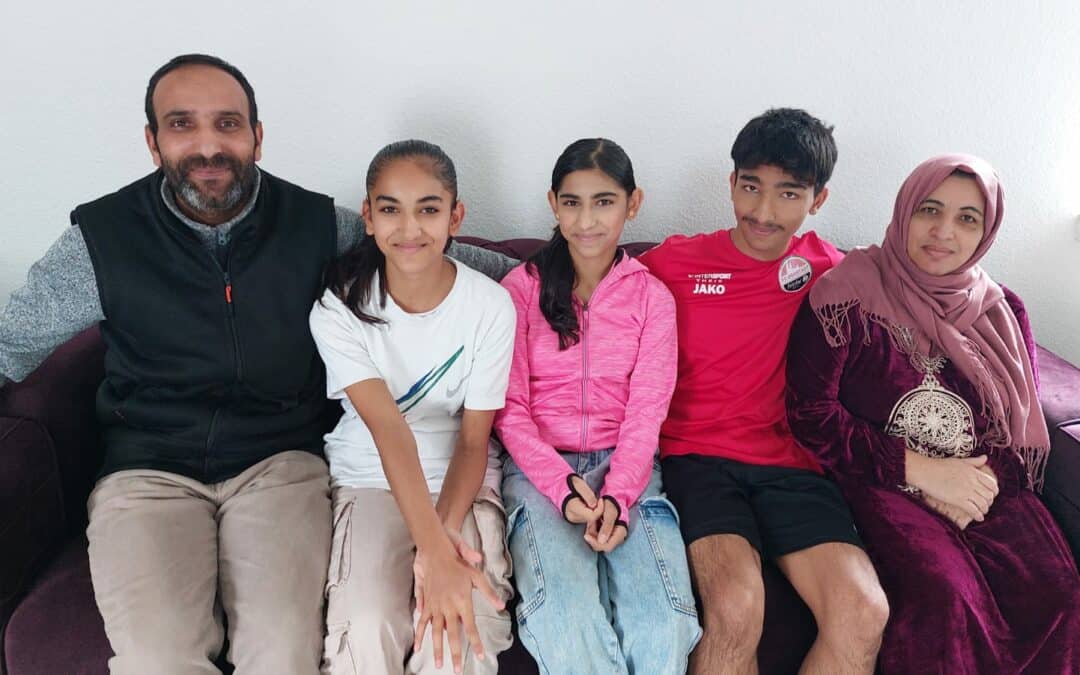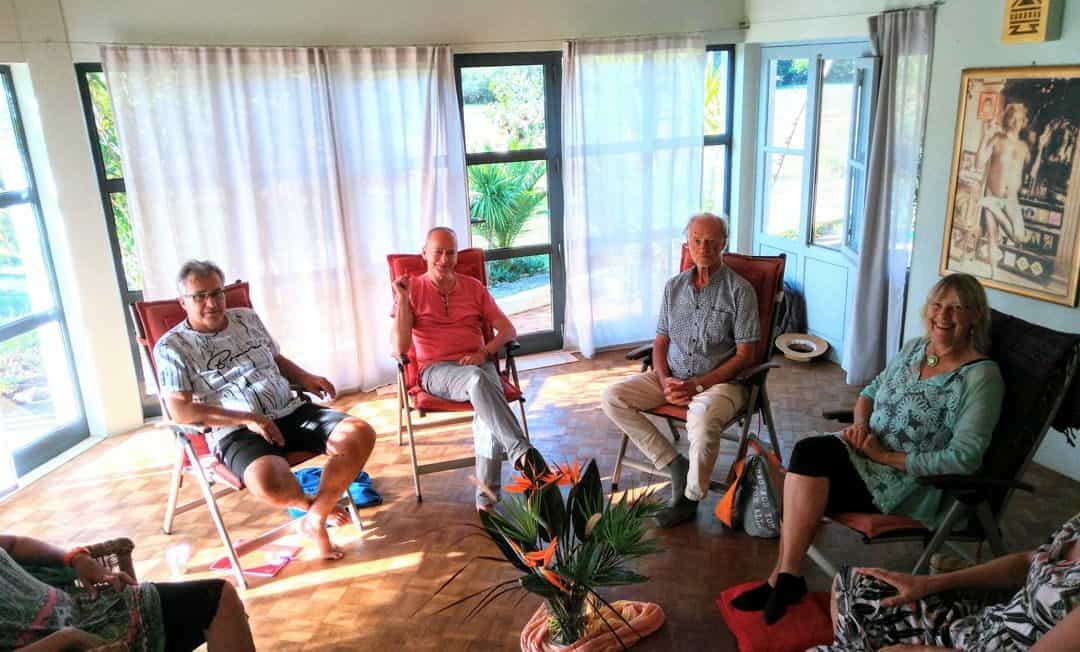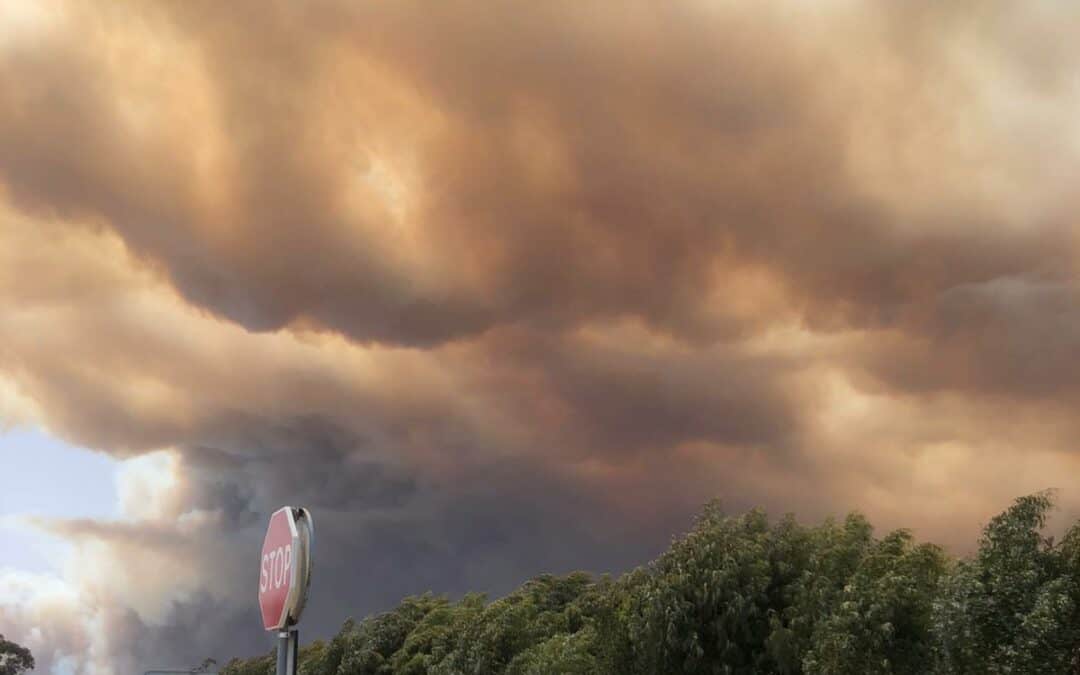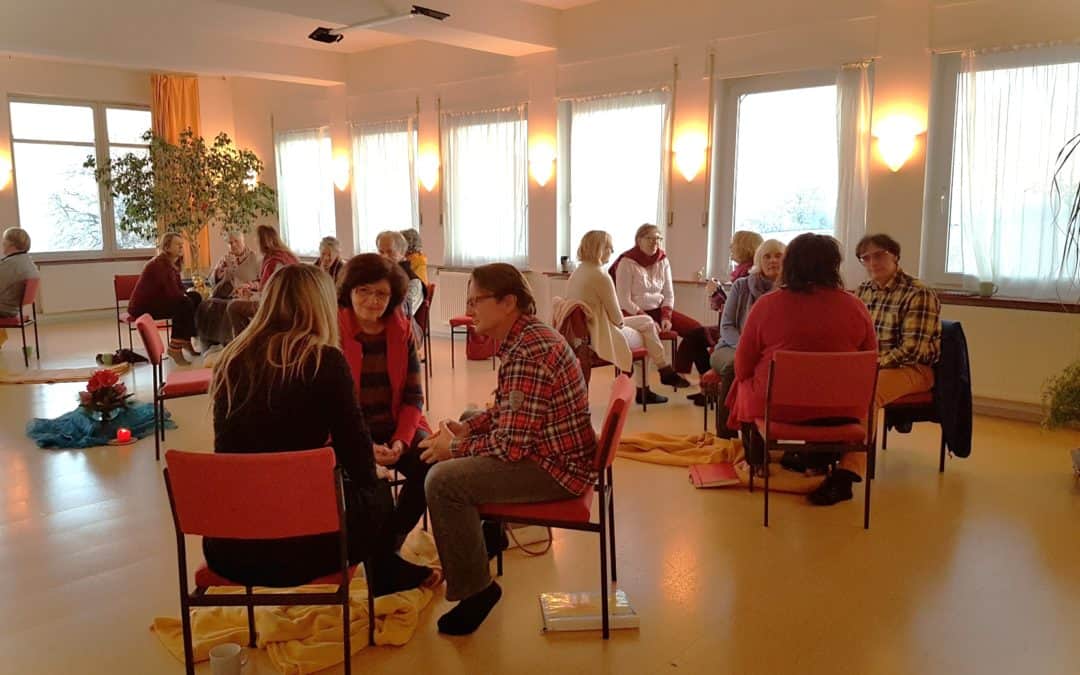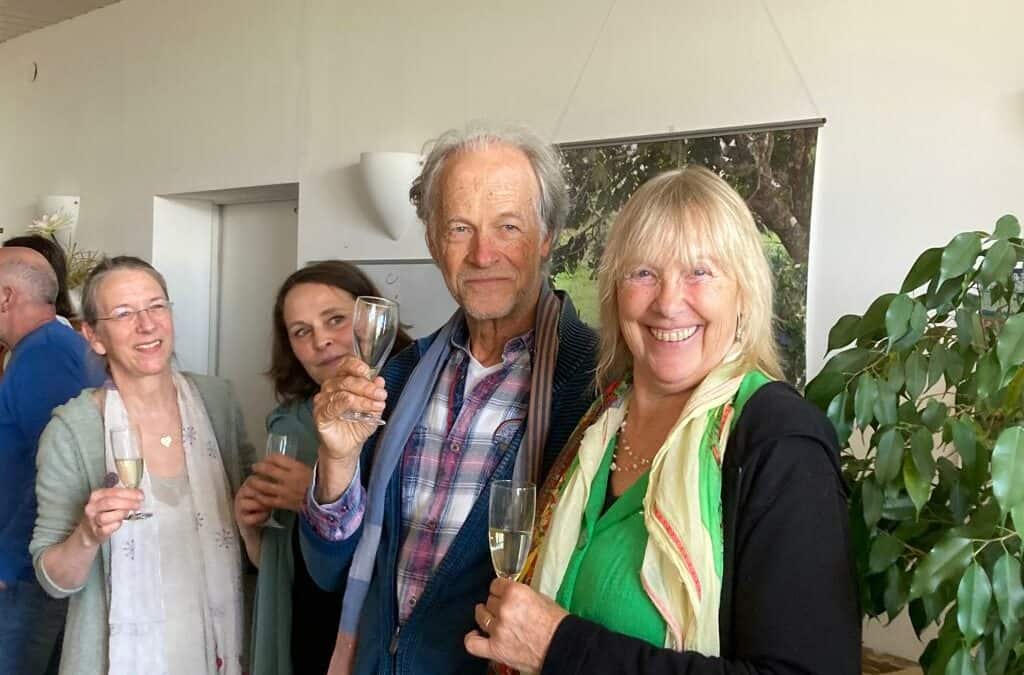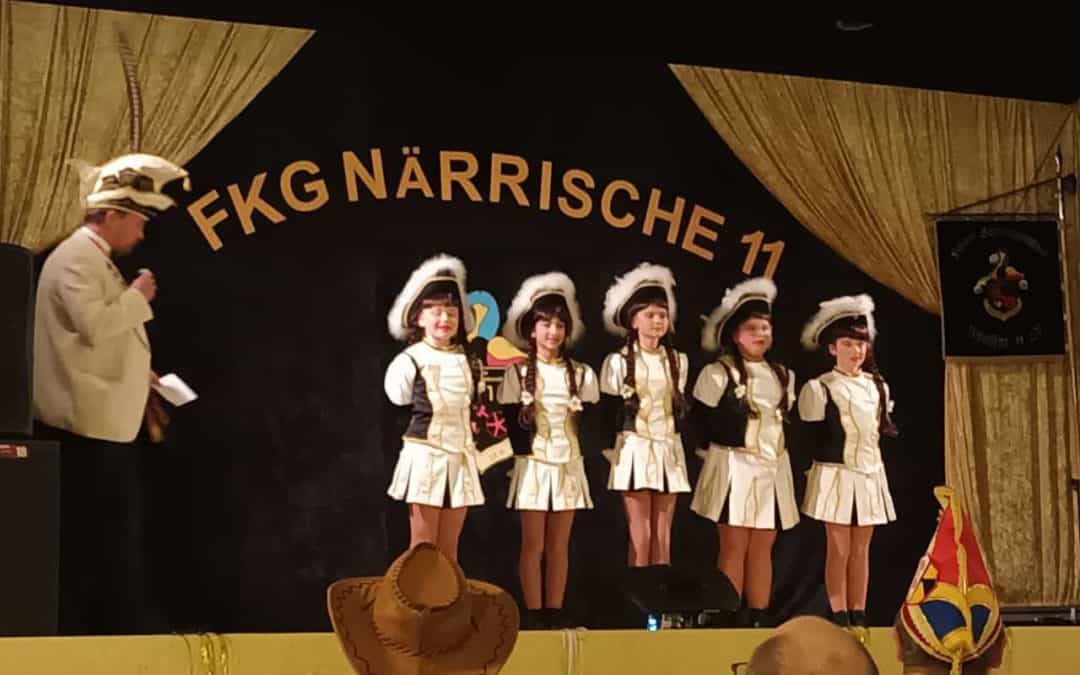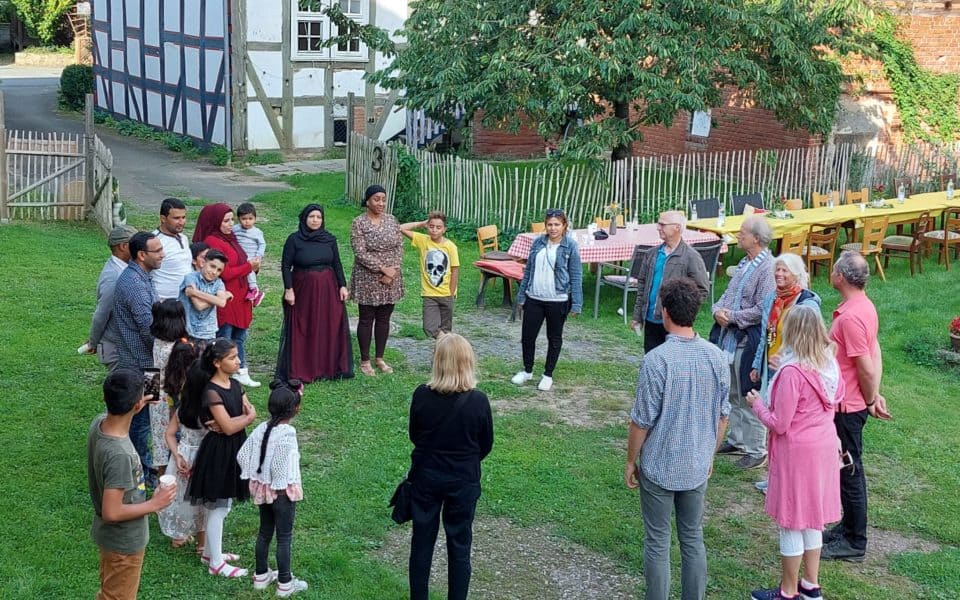Thomas Falk works as an economist at the International Food Policy Research Institute and Phillips University in Marburg. His research focuses on coordination and cooperation among natural resource users in the global South. He reports here on his experience of using exercises to deepen awareness and communication, as developed and applied in the FNNF WE-field work.
“For many years I have been researching and supporting communities in the Global South in relation to their use of land, water and forests. I seek to understand patterns of cooperation and regulatory mechanisms. My research has made me better understand collective action on many levels, and at the same time I felt more and more that an essential level was left out. Inspired by my own path of self-awareness, I started to integrate embodiment practices into my work. This requires courage, as not all colleagues are open to these methods, which are difficult for them to grasp.
In a current project in Namibia, we are investigating how communities in the Zambezi region are responding to climate change impacts and how they are incorporating intergenerational justice into their actions today. To do this, we are using an experimental approach. In our experiment, we have community members play a game that maps intergenerational justice at its core. The actual experiment consists of guiding some groups through a meditation beforehand, and then we compare whether the play behavior of the two groups differs. Meditation is quite a foreign concept in this cultural context, even though people there naturally have access to essential spaces as well. First impressions show that at first there is irritation and astonishment, but then most participants engage in the meditation, slow down, and emerge from a noticeably deeper energy. Should we be able to show that this state also influences behavior in play and in reflections on climate change, this could provide compelling new arguments for addressing more essential levels more specifically in development projects.”
